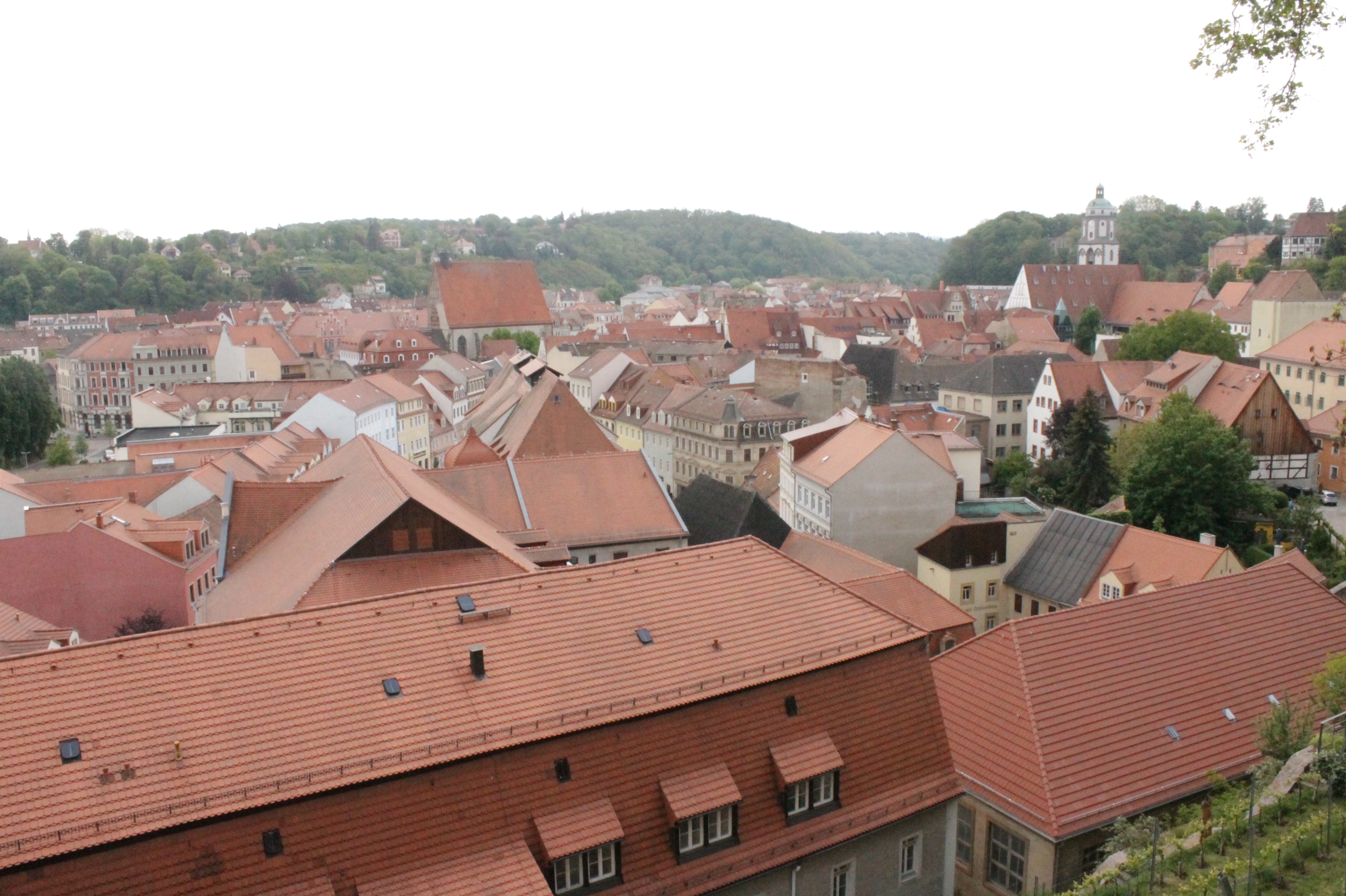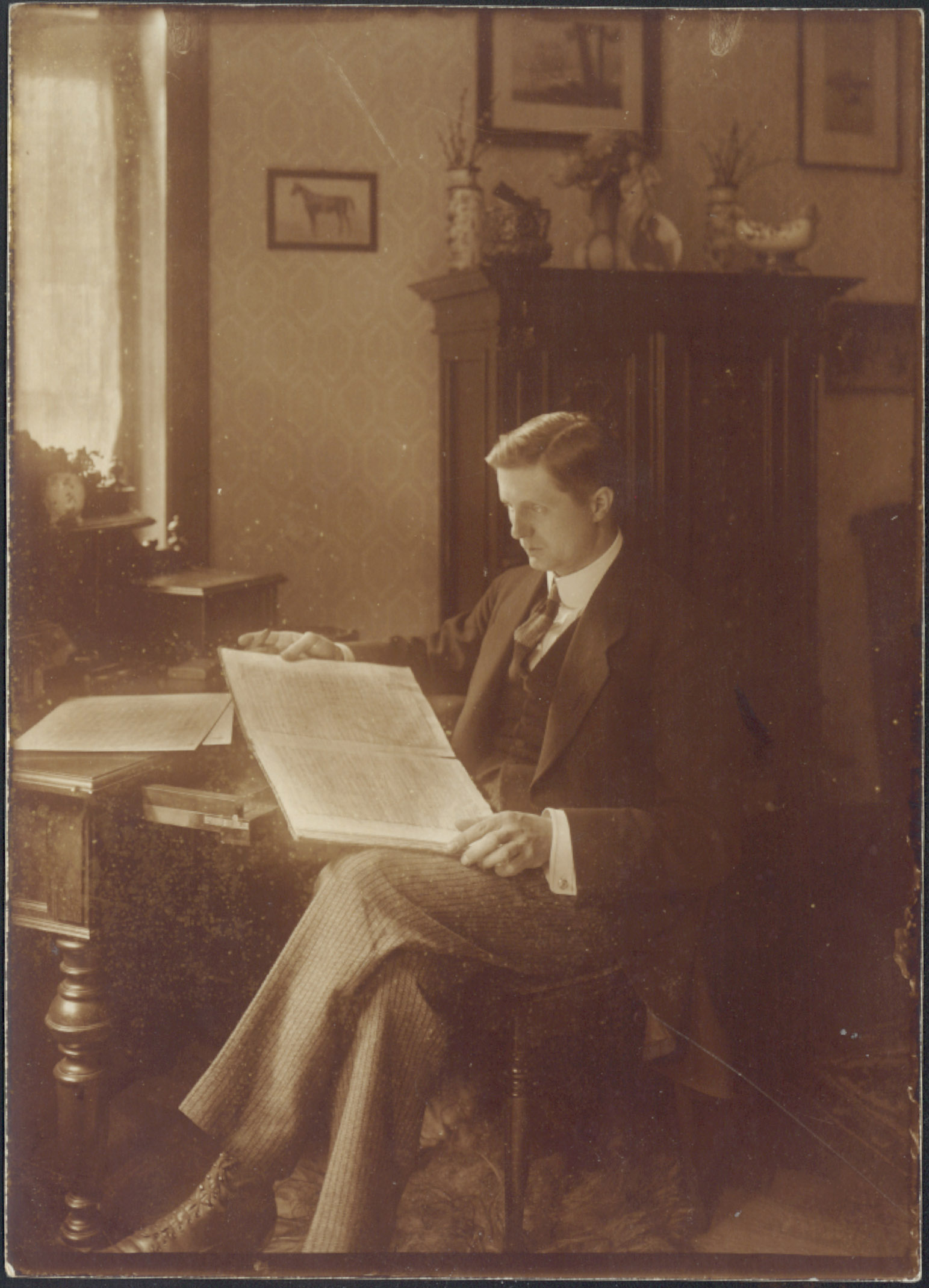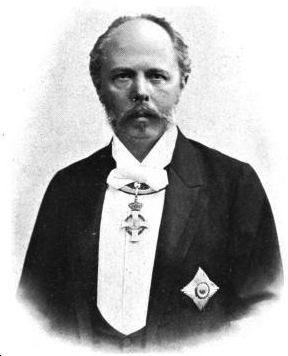|
Hermann Kutzschbach
Hermann Ludwig Kutzschbach (30 August 1875, Meissen – 9 February 1938, Dresden) was a German conductor whose career was principally at Dresden. The son of a music-master, he studied at the Dresden Conservatory under Adolf Kluge, Eugen Krantz and Felix Draeseke. In 1895 he became répétiteur at the Dresden Court Theatre, and he remained there, though with short absences (notably in 1898 at Cologne and at the New Royal Opera House in Berlin), until 1906. In 1898 he became 3rd conductor at Dresden, with Ernst von Schuch and Bernhard Joachim Hagen. From 1906-1909 he went to Mannheim as 1st conductor, and then returned to Dresden as successor to Hagen. In 1913 he became 2nd conductor, and after Schuch's death in 1914 he acted as 1st conductor with Fritz Reiner. Later he co-operated with Fritz Busch Fritz Busch (13 March 1890 – 14 September 1951) was a German conductor. Busch was born in Siegen, Westphalia, to a musical family, and studied at the Cologne Conservatory. Af ... [...More Info...] [...Related Items...] OR: [Wikipedia] [Google] [Baidu] |
Meissen
Meissen (in German orthography: ''Meißen'', ) is a town of approximately 30,000 about northwest of Dresden on both banks of the Elbe river in the Free State of Saxony, in eastern Germany. Meissen is the home of Meissen porcelain, the Albrechtsburg castle, the Gothic Meissen Cathedral and the Meissen Frauenkirche. The ''Große Kreisstadt'' is the capital of the Meissen district. Names * german: Meißen * french: Meissen, ou, selon l'orthographe allemande: ''Meißen''; en français suranné: ''Misnie'' * la, Misnia, Misena, Misnensium * pl, Miśnia * cs, Míšeň * hsb, Mišno * dsb, Mišnjo * zh, 迈森 (pinyin: ) History Meissen is sometimes known as the "cradle of Saxony". It grew out of the early West Slavic settlement of ''Misni'' inhabited by Glomatians and was founded as a German town by King Henry the Fowler in 929. In 968, the Diocese of Meissen was founded, and Meissen became the episcopal see of a bishop. The Catholic bishopric was suppressed in 1581 after ... [...More Info...] [...Related Items...] OR: [Wikipedia] [Google] [Baidu] |
Bernhard Joachim Hagen
Bernhard Joachim Hagen (April 1720 in or near Hamburg (?) – 9 December 1787 in Ansbach) was a German composer, lutenist and violinist. He was the last important composer of lute music in 18th-century Germany. Life Little is known about his youth, but he grew up in a musical family; his brother Peter Albrecht Hagen (also called Peter Albert van Hagen, 1714 - 12 September 1777) studied the violin with Francesco Geminiani, learned to play the lute and organ, and was an organist in Rotterdam. There are several transcriptions of Geminiani's violin works for lute by J.B. Hagen extant. The younger Bernhard Joachim Hagen must have learned to play lute and violin early too, for in 1737 he was already employed as an assistant to Bayreuth violin virtuoso and Kapellmeister Johann Pfeiffer; later he was listed officially as a court violinist. He kept this position at the Bayreuth and since 1769 the Ansbach court until his death. Adam Falckenhagen and Charles Durant (Karol Duranowski), also c ... [...More Info...] [...Related Items...] OR: [Wikipedia] [Google] [Baidu] |
Hochschule Für Musik Carl Maria Von Weber Alumni
' (, plural: ') is the generic term in German for institutions of higher education, corresponding to ''universities'' and ''colleges'' in English. The term ''Universität'' (plural: ''Universitäten'') is reserved for institutions with the right to confer doctorates. In contrast, ''Hochschule'' encompasses ''Universitäten'' as well as institutions that are not authorized to confer doctorates. Roughly equivalent terms to ''Hochschule'' are used in some other European countries, such as ''högskola'' in Sweden and Finland, ''hogeschool'' in the Netherlands and Flanders, and ' (literally "main school") in Hungary, as well as in post-Soviet countries (deriving from высшее учебное заведение) in Central Europe, in Bulgaria ( висше училище) and Romania. Generic term The German education system knows two different types of universities, which do not have the same legal status. The term ''Hochschule'' can be used to refer to all institutions of higher e ... [...More Info...] [...Related Items...] OR: [Wikipedia] [Google] [Baidu] |
German Male Conductors (music)
German(s) may refer to: * Germany (of or related to) **Germania (historical use) * Germans, citizens of Germany, people of German ancestry, or native speakers of the German language ** For citizens of Germany, see also German nationality law **Germanic peoples (Roman times) * German language **any of the Germanic languages * German cuisine, traditional foods of Germany People * German (given name) * German (surname) * Germán, a Spanish name Places * German (parish), Isle of Man * German, Albania, or Gërmej * German, Bulgaria * German, Iran * German, North Macedonia * German, New York, U.S. * Agios Germanos, Greece Other uses * German (mythology), a South Slavic mythological being * Germans (band), a Canadian rock band * "German" (song), a 2019 song by No Money Enterprise * ''The German'', a 2008 short film * "The Germans", an episode of ''Fawlty Towers'' * ''The German'', a nickname for Congolese rebel André Kisase Ngandu See also * Germanic (other) * Germa ... [...More Info...] [...Related Items...] OR: [Wikipedia] [Google] [Baidu] |
German Conductors (music)
German(s) may refer to: * Germany (of or related to) **Germania (historical use) * Germans, citizens of Germany, people of German ancestry, or native speakers of the German language ** For citizens of Germany, see also German nationality law **Germanic peoples (Roman times) * German language **any of the Germanic languages * German cuisine, traditional foods of Germany People * German (given name) * German (surname) * Germán, a Spanish name Places * German (parish), Isle of Man * German, Albania, or Gërmej * German, Bulgaria * German, Iran * German, North Macedonia * German, New York, U.S. * Agios Germanos, Greece Other uses * German (mythology), a South Slavic mythological being * Germans (band), a Canadian rock band * "German" (song), a 2019 song by No Money Enterprise * ''The German'', a 2008 short film * "The Germans", an episode of ''Fawlty Towers'' * ''The German'', a nickname for Congolese rebel André Kisase Ngandu See also * Germanic (other) * Germa ... [...More Info...] [...Related Items...] OR: [Wikipedia] [Google] [Baidu] |
1875 Births
Events January–March * January 1 – The Midland Railway of England abolishes the Second Class passenger category, leaving First Class and Third Class. Other British railway companies follow Midland's lead during the rest of the year (Third Class is renamed Second Class in 1956). * January 5 – The Palais Garnier, one of the most famous opera houses in the world, is inaugurated in Paris. * January 12 – Guangxu Emperor, Guangxu becomes the 11th Qing Dynasty Emperor of China at the age of 3, in succession to his cousin. * January 14 – The newly proclaimed King Alfonso XII of Spain (Queen Isabella II's son) arrives in Spain to restore the monarchy during the Third Carlist War. * February 3 – Third Carlist War – Battle of Lácar: Carlist commander Torcuato Mendiri, Torcuato Mendíri secures a brilliant victory, when he surprises and routs a Government force under General Enrique Bargés at Lácar, east of Estella, nearly capturing newly cr ... [...More Info...] [...Related Items...] OR: [Wikipedia] [Google] [Baidu] |
Arthur Eaglefield Hull
Arthur Eaglefield Hull (10 March 1876 – 4 November 1928) was an English music critic, writer, composer and organist.Arthur Eaglefield Hull (Sibley Music Library – 7 September 2010). He was the founder of the British Music Society.Alexandre Guilmant. Organ sonatas '. Courier Corporation; 1913. . p. 137–. Early life and education Born in Little Bowden near Market Harborough, Hull was initially a music student of the pianist and theorist Tobias Matthay and the organist Charles W Pearce (1856-1928). He graduated from Oxford University with a B.Mus in 1898 and was awarded a Doctor of Music, Doctorate of Music ...[...More Info...] [...Related Items...] OR: [Wikipedia] [Google] [Baidu] |
Fritz Busch
Fritz Busch (13 March 1890 – 14 September 1951) was a German conductor. Busch was born in Siegen, Westphalia, to a musical family, and studied at the Cologne Conservatory. After army service in the First World War, he was appointed to senior posts in two German opera houses. At the Stuttgart Opera (1918 to 1922) he modernised the repertory, and at the Dresden State Opera (1922 to 1933) he presented world premieres of operas by Richard Strauss, Ferruccio Busoni, Paul Hindemith and Kurt Weill among others. He also conducted at the Bayreuth and Salzburg Festivals. Being an ardent Anti-Nazi, Busch was dismissed from his post as director at Dresden in 1933 and made most of his later career outside Germany. He conducted in New York and London, but his main bases were Buenos Aires, where he was in charge at the Teatro Colón for several opera seasons in the 1930s and 1940s; Copenhagen and Stockholm, conducting the Danish Radio Symphony Orchestra and the Stockholm Philharmonic; ... [...More Info...] [...Related Items...] OR: [Wikipedia] [Google] [Baidu] |
Fritz Reiner
Frederick Martin "Fritz" Reiner (December 19, 1888 – November 15, 1963) was a prominent conductor of opera and symphonic music in the twentieth century. Hungarian born and trained, he emigrated to the United States in 1922, where he rose to prominence as a conductor with several orchestras. He reached the pinnacle of his career while music director of the Chicago Symphony Orchestra in the 1950s and early 1960s. Life and career Reiner was born in Budapest, Austria-Hungary into a secular Jewish family that resided in the Pest area of the city. After preliminary studies in law at his father's urging, Reiner instead decided to pursue the study of piano, piano pedagogy, and composition at the Franz Liszt Academy. During his last two years there, his piano teacher was the young Béla Bartók. After early engagements at opera houses in Budapest and Dresden (June 1914 to November 1921), where he worked closely with Richard Strauss, he moved to the United States in 1922 to take ... [...More Info...] [...Related Items...] OR: [Wikipedia] [Google] [Baidu] |
Mannheim
Mannheim (; Palatine German: or ), officially the University City of Mannheim (german: Universitätsstadt Mannheim), is the second-largest city in the German state of Baden-Württemberg after the state capital of Stuttgart, and Germany's 21st-largest city, with a 2020 population of 309,119 inhabitants. The city is the cultural and economic centre of the Rhine-Neckar Metropolitan Region, Germany's seventh-largest metropolitan region with nearly 2.4 million inhabitants and over 900,000 employees. Mannheim is located at the confluence of the Rhine and the Neckar in the Kurpfalz (Electoral Palatinate) region of northwestern Baden-Württemberg. The city lies in the Upper Rhine Plain, Germany's warmest region. Together with Hamburg, Mannheim is the only city bordering two other federal states. It forms a continuous conurbation of around 480,000 inhabitants with Ludwigshafen am Rhein in the neighbouring state of Rhineland-Palatinate, on the other side of the Rhine. Some northe ... [...More Info...] [...Related Items...] OR: [Wikipedia] [Google] [Baidu] |
Ernst Von Schuch
Ernst Edler von Schuch, born Ernst Gottfried Schuch (23 November 1846, Graz – 10 May 1914, Niederlößnitz/Radebeul Dresden) was an Austrian conductor who became famous through his working collaborations with Richard Strauss at the Dresden Court Opera. Schuch first studied law but then turned to music, trained at first by E. Stolz. He studied in Graz and later in Vienna, briefly with Felix Otto Dessoff, and started his conducting career in 1867 as Kapellmeister at Lobe's Theatre in Breslau while the Breslau Opera was out of action following a fire. Coincidentally, a father and son with the same family name Schuch had built and run the first opera theatre in Breslau 120 years earlier:North German Opera in the Age of Goethe - Page 83 Thomas Bauman - 1985 "Breslau in Silesia offered German companies an attractive alternative to Leipzig or Berlin. Like them, it could support a company from autumn ... the charming name Theater on the Cold Ashes. Schuch brought the first Hiller ... [...More Info...] [...Related Items...] OR: [Wikipedia] [Google] [Baidu] |
Dresden
Dresden (, ; Upper Saxon: ''Dräsdn''; wen, label=Upper Sorbian, Drježdźany) is the capital city of the German state of Saxony and its second most populous city, after Leipzig. It is the 12th most populous city of Germany, the fourth largest by area (after Berlin, Hamburg and Cologne), and the third most populous city in the area of former East Germany, after Berlin and Leipzig. Dresden's urban area comprises the towns of Freital, Pirna, Radebeul, Meissen, Coswig, Radeberg and Heidenau and has around 790,000 inhabitants. The Dresden metropolitan area has approximately 1.34 million inhabitants. Dresden is the second largest city on the River Elbe after Hamburg. Most of the city's population lives in the Elbe Valley, but a large, albeit very sparsely populated area of the city east of the Elbe lies in the West Lusatian Hill Country and Uplands (the westernmost part of the Sudetes) and thus in Lusatia. Many boroughs west of the Elbe lie in the foreland of the Ore Mounta ... [...More Info...] [...Related Items...] OR: [Wikipedia] [Google] [Baidu] |






